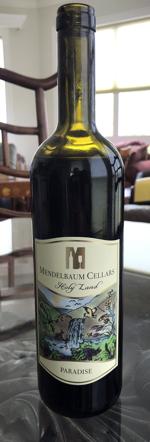Finally, a contentious and partisanship fight has come to an end to what has become known as “the truth in labeling law” for Texas wines.
Designed to be a guarantee of authentic Texas wines, the newest bill finally passed the Texas Legislature after being passed over by committee with the goal of settling issues internally between the two groups representing growers and producers.

Lorrie Dicorte has been in the wine business for 38 years and her family for 90 years. Her grandfather, Billy Dicorte, and cousin, Tony LaBarbera, were the first to import fine wines such as Ch Lafite Rothschild. Lorrie has served on international wine competition judging panels, and is known for her keen smell and taste.
For six years, the issue of only 100% Texas grapes in a bottle has deeply divided the wine industry in the state into two sides: Those who believe only 100% Texas grapes should be in a bottle to receive Texas designation on the label and those who believe a certain percentage of Texas-grown grapes should be allowed in a bottle to receive a Texas designation.
The Texas Wine and Grape Growers Association represents 85% of the state’s grape growers and about 600 of the state’s wineries. This group understood the challenges still presented to small start-ups, as well as large wineries, that would greatly affect them with a sole 100% rule.
Texas has diverse conditions across the state and the AVAs (American Viticultural Areas that indicate geographic grape-growing regions) face everything from hailstorms, snow, frost, hurricanes, drought to flooding in growing regions. The group stood firm, and in the end, its strong united front brought the smaller group, Texas Wine Growers, to the table.
The one argument that both sides can agree on is that end result be that great Texas wine goes in a bottle, however made, and that protecting and upgrading our AVAs is critically important to continue to grow our state’s footing in the industry.
The Alcohol and Tobacco Tax and Trade Bureau allows generous room in its labeling requirements in order to enable states to add more requirements as needed. This new compromise will also shut out large conglomerates infiltrating Texas and shuttling their juice over state lines and being able to label it Texas, as well.
Key points in the new law are:
- Labels stating only Texas may include up to 25% grapes from outside the state.
- Labels listing a vineyard designation must contain 95% grapes from within the stated vineyard, with the remaining 5% from within Texas.
- Labels listing an AVA must include 85% grapes from within the stated AVA, with the remaining from within Texas.
- Labels listing a county designation must include 75% grapes from within the stated county, with the remaining 25% from within Texas.
This united compromise brings stricter accountability while still addressing a shortage of quality Texas grapes and the need to outsource for financial and sustainability needs.
With these new labeling requirements now in place, Texas wineries can now more accurately protect and market their wines to consumers in regard to true origins, therefore educating us on the characteristics of AVA terroir across the state. This will promote local agriculture on new level.
More Grapes
In a state where cotton is king, grapes are slowly taking over thanks to a lawsuit brought by Brazil in 2004 about the way the government here subsidized cotton farmers, therefore hurting smaller countries from competing with the low prices the crop could stay at here.
The courts eventually ruled in Brazil’s favor, and by 2014 government subsidies were reformed and greatly reduced. Cotton farmers started looking at other crops to add for more money.
With a climate often compared to Lodi, California, farmers in the Texas panhandle turned to grapes as a natural crop that can tolerate West Texas heat and drought. This Mediterranean climate has become the backbone to the state’s burgeoning wine industry.
With patience comes more grapes as crops mature, and soon more will become available for wineries to purchase. One day the 100% rule will be a milestone reached. Until then, this compromise is a win-win for all sides, and especially for Texans.
Winery in Review

The Paradise wine from Mendelbaum Cellars’ Holy Land selections is a Shiraz that has a light-bodied taste.
Mendelbaum Cellars
Mendelbaum Cellars is located on Highway 290 between Stonewall and Fredericksburg. It produces Israeli and Texas wines, making it unique to our wine industry here. The winery also has cabin rentals at the vineyard for guests to stay and relax.
Among the wines it produces are:
Paradise (Holy Land) — A 100% Shiraz. This is a French-styled wine with a light body that has mulberries, raspberries, eucalyptus and sweet oak.
Segundo — This is its Texas fruit wine label. The Big Texas Blend has fruit sourced from the Texas High Plains and panhandle. The blend is composed from Merlot, Cabernet Sauvignon, Cabernet Franc and Tempranillo. Soft floral notes give way to berry compote.
Website: www.mendelbaumcellars.com 
Lorrie Dicorte has been in the wine business for 38 years and her family for 90 years. Her grandfather, Billy Dicorte, and cousin, Tony LaBarbera, were the first to import fine wines such as Ch Lafite Rothschild. Lorrie has served on international wine competition judging panels, and is known for her keen smell and taste.
June 24, 2021 at 12:30PM
https://ift.tt/3xOcFdz
Grape Expectations: Six years, three tries, one compromise - Waco Tribune-Herald
https://ift.tt/3eO3jWb
Grape

No comments:
Post a Comment